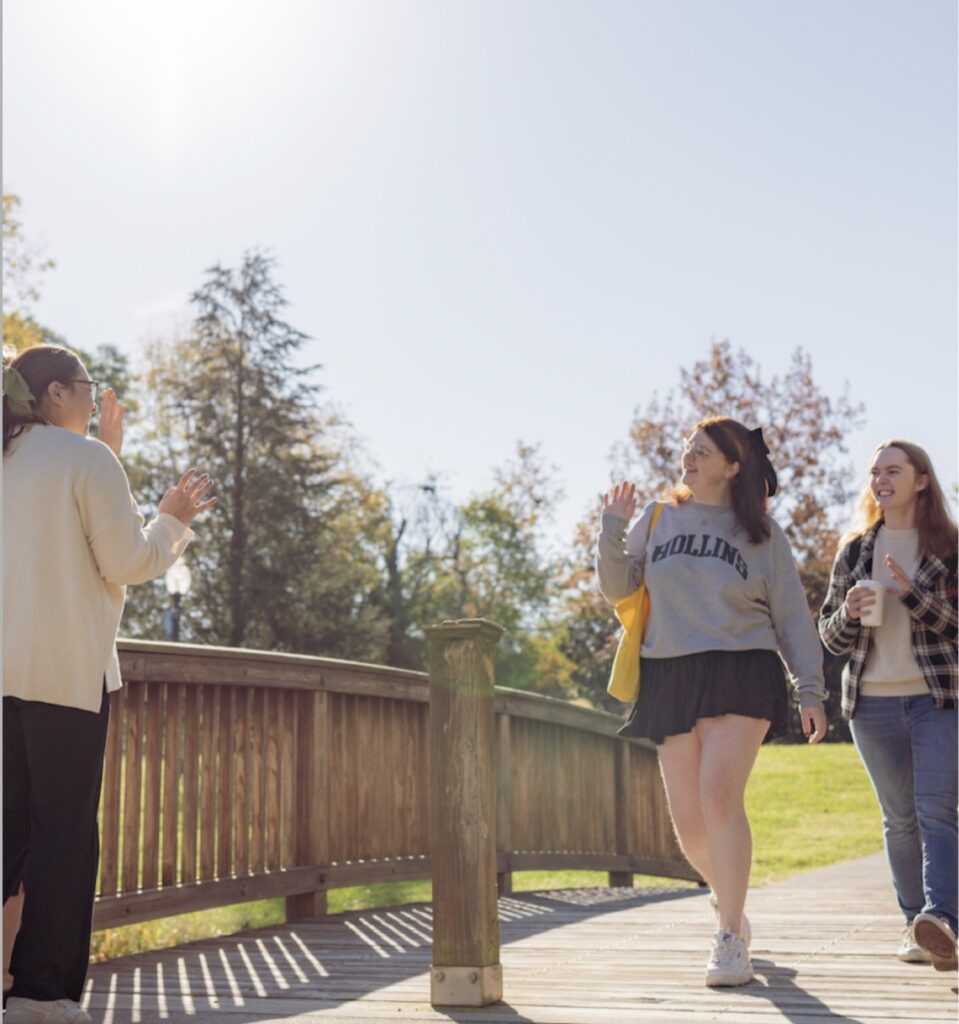Celebrate 2025 Commencement






Discover Your Academic Journey

When mentorship and expertise go hand in hand, students shine.

Gain more than an education
At Hollins, learning isn’t limited to the classroom. Our diverse community and vibrant campus life provides ample opportunities to expand your horizons and discover more about yourself.
Outcomes
Success After Hollins
Hollins prepares you for what’s next following your undergraduate experience. More than 9 in 10 graduates are employed, in graduate school, in military service, or in a volunteer organization within six months of graduating!
Find out more



Experiences
Campus life at Hollins is like no other.
Hollins provides a full student experience, both inside and outside the classroom. Steeped in traditions with a multitude of clubs, organizations, and programs to partake in, you’ll become part of a community that will help you grow in ways you’ve never imagined.
Explore life on campusA College Education with No Direct Costs
The HOPE Scholarship
To the future leaders, the budding scientists, the talented artists, and the change makers across the nation — we see you, and we know you’re the future.
Beginning in the fall of 2025, the Hollins Opportunity for Promise through Education (HOPE) Scholarship will be awarded alongside any applicable federal and state grants to cover the direct costs of attendance for eligible new first-year students with a family household income of $65,000 or less.*
*Students who qualify for the Pell Grant



Let our campus inspire your future.
A tour of our campus provides the perfect opportunity to sit in on classes, meet one-on-one with professors, grab lunch in our dining hall, or connect with a coach.
Realize your full potential.
Hollins is a women’s college that puts you at the helm of your destiny. Now it’s time to test your limits and see what you can do.

“It isn’t enough to say, ‘I want to create change.’ I want to be a leader as I create that change.”
More from Tyler






















